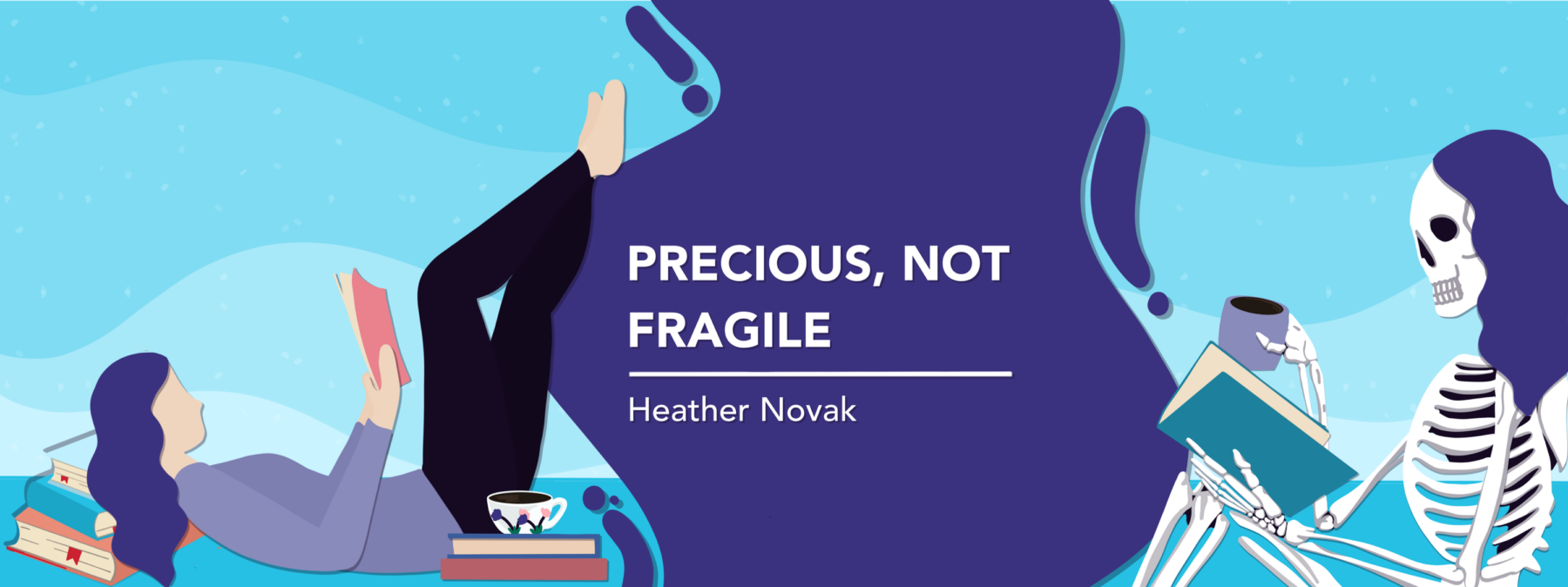With hypoparathyroidism, I need to treat my energy as a luxury item
How I planned ahead to prevent fatigue on a recent family trip
Written by |

On a recent episode of the “New Heights” podcast, singer Taylor Swift said, “Think of your energy … as if it’s like a luxury item.” I repeat this phrase every day.
Over the past three weeks, I’ve been on a typing hiatus, trying to heal muscle and nerve pain affecting my arms, shoulders, and neck. This column is the first I’ve written using (mostly) dictation, which has definitely involved a learning curve.
During my break, I took a road trip to Pennsylvania for my grandma’s memorial service. I hadn’t been there since the early days of my hypoparathyroidism diagnosis, and I hadn’t seen the majority of my Pennsylvania loved ones since my grandparents moved away 20-some years ago. I knew there’d be endless questions about why I was wearing a mask, why I was using a mobility aid, and what I was doing with my life now.
As anyone with a chronic illness knows, these are the exact types of conversations that can be draining.
Careful planning required
To protect myself from expending my energy in the wrong places, I sat down and made a plan for how to conserve my energy before I even started packing.
First step: Decide how to field overly curious questions.
I settled on being vague while providing follow-up resources. When asked about my health, my mobility aids, or my mask, I said I had a rare disease and was immune-compromised. To the more curious, I added that I had muscle issues. For all additional questions, I directed people to the hypopara section on my website and to Hypoparathyroidism News.
Next, I gathered clothes that mixed and matched easily and were gentle on the body for high-pain days. I opted for support and function over fashion.
Then I had to find the right place to stay, especially with a strict diet. I booked a hotel room with a small kitchen that was close to the memorial. I packed one of my double-insulated medication coolers with food from home, including premade dinners that I’d prepared and frozen. This effort took the stress of figuring out meals off my plate. We cooked breakfast in the room, and I had lunch and dinner at my fingertips.
Another item on the list was building in rest time. My spouse and I arrived a day earlier than the rest of my family, allowing us time to rest before the events began. I also made it clear to everyone that I needed to nap around the same time every day, allowing them to adjust their schedules if my presence was required.
Another lifesaver: my mobility aids.
I brought a variety of them with me and used them regularly, conserving my energy for the bigger days. My new motorized chair, which I’ve named Stella, was the star of the show. She was a beast through gravel, grassy hills, parking lots, and weaving through crowds. I also had a sturdy cane, which helped during short distances when I didn’t need my chair, but still wanted support. By using my mobility aids regularly, I went through my energy slower.
Finally, I made plans to connect with long-missed cousins and childhood friends in other ways beyond this one trip. I wasn’t able to add on a night out at the bar or a side trip, but promised FaceTimes and “thinking of you” text messages have helped maintain a connection at a pace that I can handle.
My self-care concluded with a therapy appointment a few days after I returned home. During this appointment, my therapist and I worked through the acute grief of the memorial, as well as family dynamics and memories of a time before I had hypopara. It helped my brain and my body recover from the immediate effects of the trip.
While I’m still on a typing restriction — including partial bed rest for my nerve issues and a blast of vertigo — I was thrilled that I successfully made it through all the important events surrounding the memorial and was able to spend precious time with family. Through careful planning and a lot of self-care, treating my energy as a luxury item helped me celebrate my grandma’s life with the people I loved.
Note: Hypoparathyroidism News is strictly a news and information website about the disease. It does not provide medical advice, diagnosis, or treatment. This content is not intended to be a substitute for professional medical advice, diagnosis, or treatment. Always seek the advice of your physician or another qualified health provider with any questions you may have regarding a medical condition. Never disregard professional medical advice or delay in seeking it because of something you have read on this website. The opinions expressed in this column are not those of Hypoparathyroidism News or its parent company, Bionews, and are intended to spark discussion about issues pertaining to hypoparathyroidism.






Leave a comment
Fill in the required fields to post. Your email address will not be published.